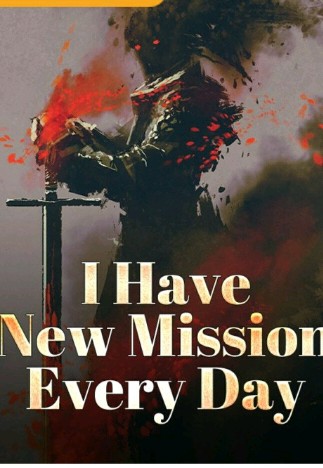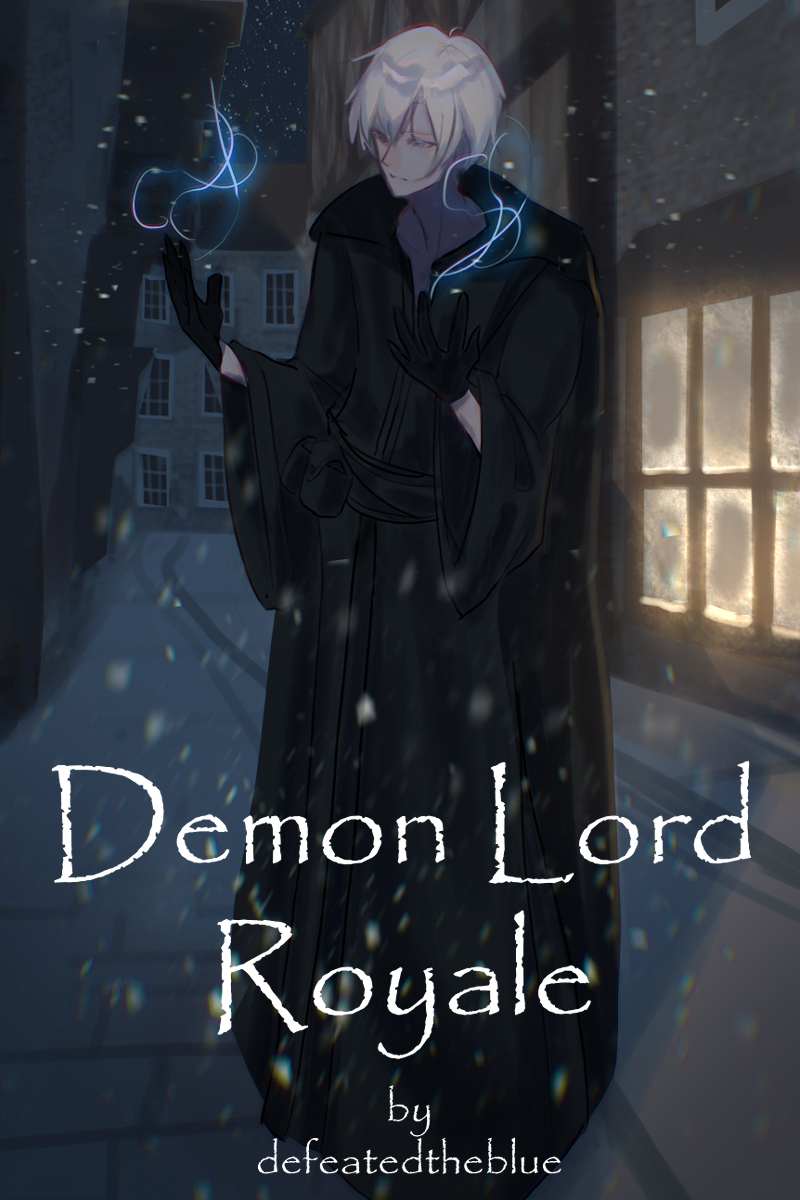He was alone once again. “Brings back old memories.” he muttered. Unlocking the front door, he stepped into his parents’ house. It was devoid of inhabitants, but it was filled with memories for Kain. The standing mirror that stood against the wall in the front hallway was one of them. He could vividly remember his mother’s affection as she measured his height, which was one of the highlights of his birthdays. He grimly shook his head. “Only in memories.” he spoke to the mirror.
Walking down the hallway, he glanced into the kitchen and the living room. The kitchen table caught his attention. It brought back memories like the mirror did. Kain could remember the few times he actually used the kitchen table to do his homework. The memories filled his chest with warmth, the sights of his father helping him with math flooded his mind, but he pushed them away. What replaced the warmth was cold annoyance. He suddenly recalled all of the times he had to finish his homework in detention. That cold, brightly lit room filled with nothing but the scribbling of a pencil brought a wave of memories once again.
He remembered that he was the scapegoat. Every time one of his peers broke a rule, he was always the one to blame. The teachers never questioned why everything was his fault, and always sent him to detention. He laughed at how childish it felt, but he knew that it made him a loner amongst his peers. For that matter his parents were in a similar situation, back when they were alive, anyway. He had heard the story only once, about a decade ago as he was nearing graduation, but he would never forget it.
Before he was born, his parents were doing well for themselves. They both had jobs, had friends, and had each other. It was a romantic dream for them, but it came to an end soon enough. His parents met a string of unfortunate events; they lost their jobs and lost their friends. Though, the first was due to a recession at the time, the second was left more vague. Something about rumors, according to his parents. Either way, they were left with few friends and little money. It was at that moment, they learned of his mother’s pregnancy.
They said that, at the time, it felt like a cruel joke, played by whatever god or otherwise controlled their lives. It was hopeless for them for a few months, but things turned bright soon enough. His father got a new job, his parents began to prepare for his arrival, and the ‘rumors’ had been mostly dispelled by some of the nicer people that lived in the town. Once he was born, they named him Kain, as a joking reference to the despair they felt when he was conceived. While he was a bit baffled about why they named him Kain, he definitely admired their mental fortitude to be able to go through what they did and make jokes about it afterward.
He traced his finger along the table, feeling the smooth wood rub against his finger. He sighed. “Too bad I didn’t get the happily ever after here like they did. I had to leave for the city.” he muttered. Walking into the living room, he looked around and spotted the knife lying on the mantle above the fireplace. It was an old heirloom from a few generations ago named Dea. It got its name from a relative with a bit of a speech impediment. When the relative was young, they saw the knife being used to skin a deer and called it the ‘Dea knife.’ The name stuck, much to the dismay of that particular relative. His family called it Dea, mostly to make it feel more like a person. While he found the naming to be a bit mean to the relative with the speech impediment, no-one found it entirely rude.
He picked up the knife and pulled it from its sheath. It had a curved blade about 6 inches long and an old wooden handle made of some hardwood he had never heard of before. The bottom of the handle had a metal piece built into the wood, making it look like a pommel. He sheathed the knife once more and sat on the couch. They didn’t have a t.v. in the living room, but they did have one in the kitchen, which was a break in convention that didn’t go over his head. He took a break and stared out the window, something that gave room for his early memories to take center stage in his mind.
All of the memories of the times he had been made the scapegoat returned. He had never known why he was always being blamed by others, but by the time he understood that, he could not care less. He never actually did anything he was blamed for. There were only 2 times he was punished for things he did. The first was when he started a brawl over someone insulting his parents, and the other was for trying to insinuate that a teacher and student were having an illicit relationship. “That teacher got fired, right?” he pondered. “Whatever. They probably forgot about what I said.”
He had realized long ago that he never felt anything more than annoyance from his peers and teachers. He knew that some would foster deep hatred for being blamed for everything and never being believed, but he just saw his peers as ignorant. They acted on some perception of him that they never actually confirmed. He had heard the stories about him, the ones that said he was some monster or demon. It was comical, really, because his parents told him that they believed that the unspecified ‘rumors’ that plagued them were the root of his own problems. Unfortunately, he only learned of that connection after he graduated. He never told anyone who cared about him about the detentions, using lies about strolling through town as an excuse to explain why he was home late so often. ‘Though, the teachers never called them about it.’ he thought to himself. ‘Maybe that’s just a bit of proof about the ‘it was the rumors’ explanation.’
He shrugged to himself. ‘At least that was the end of being blamed for things.’ he thought. After highschool, he decided to go to college and major in weapons engineering. It was an interesting course with enough job opportunities to live a comfortable life. He was, however, still a loner in college. He never made many friends there, which was a pattern that continued in the workplace. He may have not had friends, but he was active in working with others. “Now that I think about it, was I ever really alone?” he pondered aloud. He was always surrounded by others, but he always felt alone. He may have heard others, but he never really listened to them. He may have spoken to others, but he never really talked to them. Was it his fault, or others? He waved his hand, dispelling his thoughts. “That’s an existential crisis for later.” he said sarcastically. “I’ve got to find something to take home. Maybe something to pass onto kids, if I ever have any.”
He stood from the couch and looked around the room. His family was never one to keep pictures, but they did mark their experiences in other ways. The frame of the mirror was covered in stacks of marks, each showing his height in a specific year. He found no marks on the knife, nor on its sheathe, so he assumed that it was tradition to keep the two unmarked. He knew how sentimental his family, the Lenems, were. It was a trait from his father’s side, but one his mother quickly adopted. At that point, however, the heirlooms left were the knife and the house. ‘Speaking of, I need to find someone to take care of it.’ he thought. He left the living room, passed through the hallway, and entered the kitchen once again. He found nothing of note, so he moved on. He checked every room he could find, from the basement, the bathroom, and the bedrooms, he found nothing much of note. However, he stopped when he was about to climb into the attic.
He had never actually been up there, and he knew nothing about it. Before he climbed the folding ladder up, he tried to think of anything else he had forgotten. With a pause, his parents rushed into his mind. Their faces shining brightly and their voices encouraging him at every step. He had good parts about his childhood, and bad parts. He was happy that they were the good parts.
Resolving himself, he climbed up the ladder, and entered the attic. Despite his general hesitation, the room he found was not much to write home about. The walls, floor and ceiling were all bare, and the room was almost entirely empty, save for an odd piling of chairs in the corner. He was about to turn away when he thought for a moment. “Eh, what the hell, I’ve got nothing to lose here.” he concluded as he walked toward the stacked chairs.











